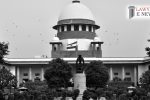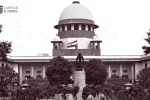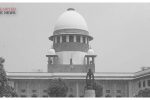Delhi High Court allowed Landlord’s Eviction Petition, Emphasizes Bonafide Need and Independent Aspirations of Daughters

On 07 July 2023, the Delhi High Court delivered a significant ruling upholding the eviction petition of a landlord while emphasizing the importance of bonafide need and the independent aspirations of his daughters. The judgment, delivered by Hon’ble Mr. Justice Najmi Waziri, sets a precedent regarding eviction petitions under the Delhi Rent Control Act, 1958.
The case involved Nisar Ahmed, the petitioner and landlord, seeking eviction of his tenant, Agya Pal Singh. The eviction was sought on the grounds of bonafide use for business purposes by the landlord and his dependent family members, specifically his two well-educated, unemployed, married daughters, who aspired to establish their own businesses. The petitioner argued that due to his health issues and the need for a ground-floor space, eviction was necessary.
The judgment highlighted the jurisdictional aspect, with the respondent tenant contending that the eviction petition should have been filed before the Wakf Tribunal under the Wakf Act, 1995. However, the court, relying on a Supreme Court decision, held that eviction petitions against Wakf properties can be maintained before the Civil Court. This clarification provides clarity for similar cases in the future.
Regarding the bonafide need of the landlord, the court stressed that disclosure of the landlord’s entire financial affairs was not mandatory and the focus should be on the availability of suitable alternate accommodation. The judgment emphasized the independence and aspirations of the landlord’s married daughters, affirming that a wife retains her individual identity and has the right to pursue her dreams and financial independence.
The court rejected the tenant’s argument that the landlord should have utilized the space available with his daughters’ husbands for his business needs. It highlighted that the suitability of the alternate accommodation for the proposed business venture should be assessed by the landlord and the daughters themselves.
Justice Najmi Waziri stated in the judgment, “A wife is neither an appendage of nor an adjunct to her husband… Her identity does not merge with or get subsumed in her husband’s identity. In law, she retains her individual entity.” This observation emphasizes the importance of respecting the individuality and aspirations of married daughters.
The judgment concluded by allowing the eviction petition and directing the tenant to vacate the premises, citing the bonafide requirement of the landlord and the lack of suitable alternate accommodation. The court also emphasized that financial well-being alone cannot undermine the bonafide requirement.
This judgment sets a significant precedent by emphasizing the rights and aspirations of daughters and the need to respect their individual identities. It establishes that the bonafide requirement for eviction should focus on the availability of suitable accommodation and not solely on the financial status of the landlord or his family members.
Date of Decision: 07.07.2023
NISAR AHMED vs AGYA PAL SINGH






